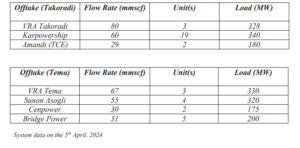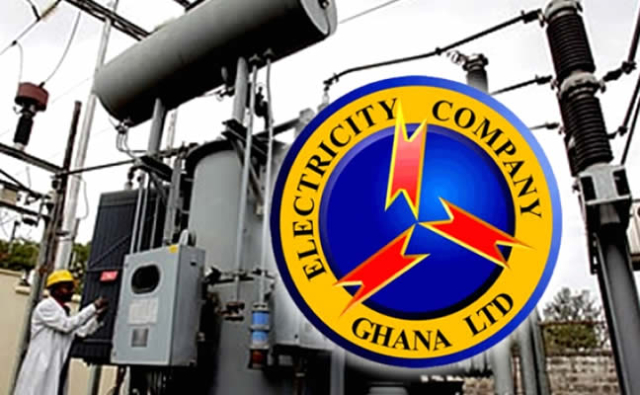By Kizito CUDJOE
The Chief Executive Officer (CEO) of Independent Power Generators Ghana (IPGG), Dr. Elikplim Kwabla Apetorgbor, has attributed the ongoing power shortages in the country to the cheap exportation of electricity. Commenting on the current erratic power supply, Dr. Apetorgbor noted that the unstable supply affecting communities and businesses is not solely due to technical issues but also to strategic decisions regarding energy exportation.
According to the IPGG boss, the Volta River Authority (VRA) has been exporting substantial amounts of electricity generated from thermal plants and hydroelectric facilities to neighbouring countries such as SONABEL and CEB.
“A significant factor contributing to these shortages or intermittency is the excessive exportation of cheap generation from the VRA thermal plants and the legacy Akosombo and Kpong hydro plants to SONABEL and CEB. The export decision, aimed at maximising commercial gains, has inadvertently impacted our domestic supply capabilities,” he stated.
To address this issue, Dr. Apetorgbor called for an immediate halt to the exportation of cheap electricity by the VRA. He argued that redirecting these resources back into the domestic market could help alleviate the strain on the national grid and improve the reliability for Ghanaian households and businesses.
Furthermore, Dr. Apetorgbor stressed the need for better allocation and utilisation of natural gas resources, criticising the current practice of allocating limited gas supplies to inefficient thermal plants operated by the VRA. “The shortages recorded on the national grid are absolutely avoidable. These plants are significantly less efficient in output compared to the modern combined cycle plants operated by the Independent Power Generators,” he stated.
It is in line with this that he suggested that reallocating these resources to more efficient independent power generators could help bridge the gap between supply and demand.
He illustrated this point in the table that folows:

He argued that from this table: “the VRA’s simple cycle and over-aged power plant received 80 million standard cubic feet (mmscf) of natural and generated only 328 megawatts (MW) of electricity. Karpowership, an IPP and a modern combine cycle plant received 60 mmscf of natural gas and generated 340MW. Without any ambiguity, it is clear that giving more gas to the IPP – Karpowership, would have yielded more electricity to the grid than to VRA.”
“In Tema, the VRA simple cycle plant received 67 mmscf of natural gas and produced only 330 MW. Sunon Asogli, an IPP and a modern-day combined-cycle received 55mmscf of natural gas and churned out 320MW. This is economic and technical efficiency. Meanwhile, Sunon Asogli 1 (200MW) is idle and accumulating idle capacity charge, while the VRA inefficient plants continue to fire. Where is the scale of preference and the economic merit order dispatch?” he quizzed.
Again, CenPower and Bridge Power received 30mmscf and 31mmscf of natural gas respectively, and yielded 175MW and 200MW in the same order. Giving CenPower up to 55 mmscf will yield or generate about 320MW, he stated.
He, therefore, argued that the shortage on the grid is fake and avoidable, adding that the disparity in efficiency not only affects the overall power generation but also escalates the operational costs ultimately borne by the Electricity Company Ghana (ECG).
“The management of the limited natural gas resource in these challenging times requires economic and logical reasoning for optimum productivity. Yes, ECG has a number of challenges to deal with, but the shortages on the grid are not an ECG issue but rather the export appetite and inefficient use of the natural gas by VRA,” he lamented.
The CEO of IPGG also expressed concern over the lack of engagement from government officials in addressing the challenges facing the energy sector. “The deliberate neglect and continuous unavailability of the sector minister to engage the Independent Power Generators for practical and workable solutions to the challenges of the sector is causing much harm to the sector. Our experience and knowledge of the industry is invaluable and should not be underestimated,” he said.
He, therefore, urged collaborative efforts between industry stakeholders to develop sustainable solutions and prioritise the national interest.
Dr. Apetorgbor reiterated IPGG’s commitment to working with all stakeholders to ensure a stable, efficient and sustainable power supply. “We are dedicated to working collaboratively with all stakeholders in the value chain in a constructive dialogue and to support strategic, forward-thinking policies that prioritise the national interest and sustainability of the sector to ensure a stable, efficient and sustainable power supply for all Ghanaians,” he concluded.










